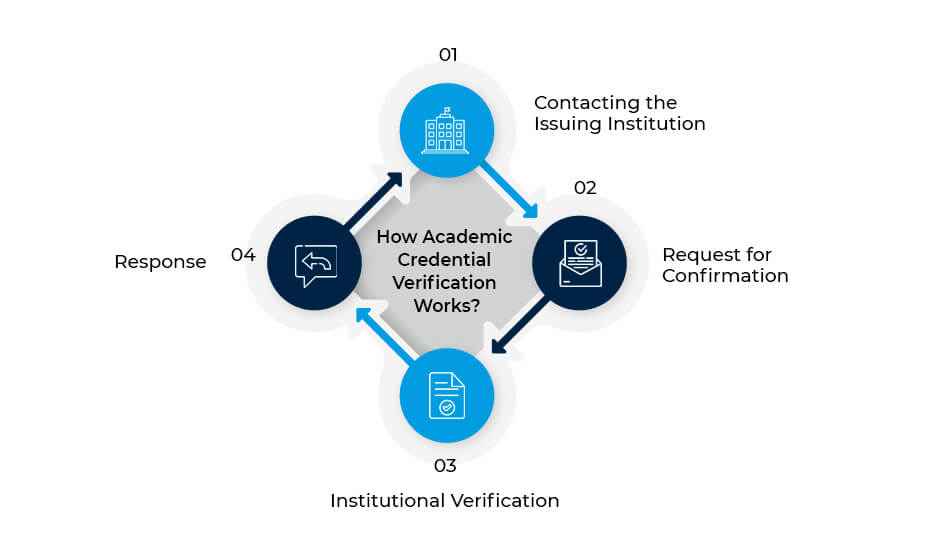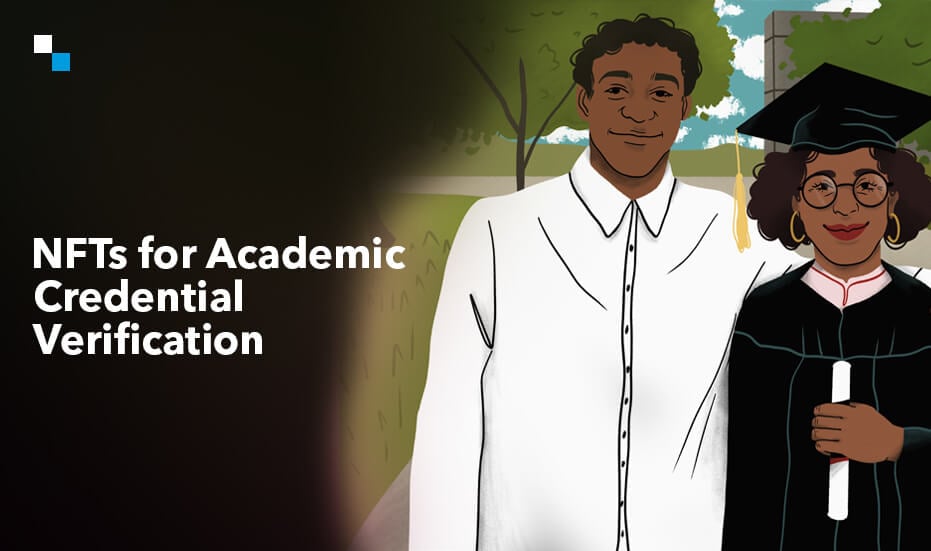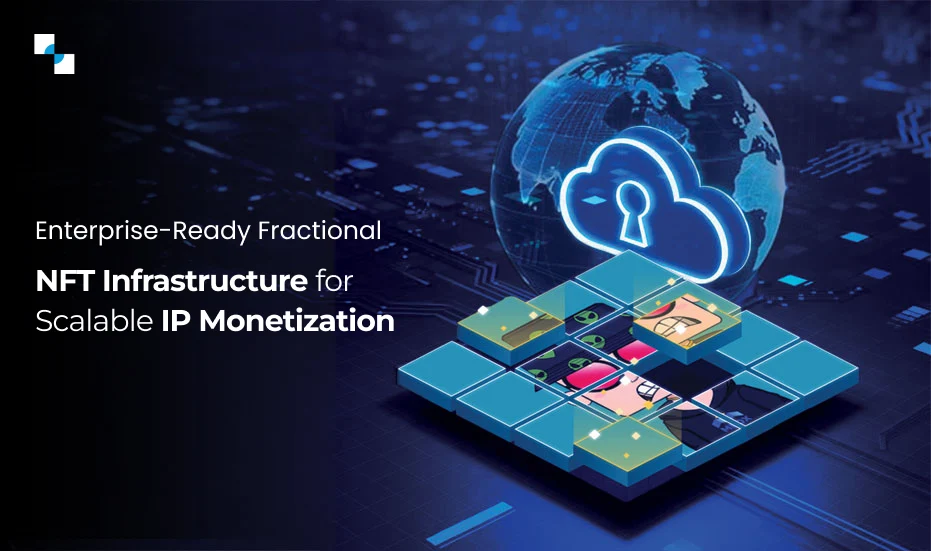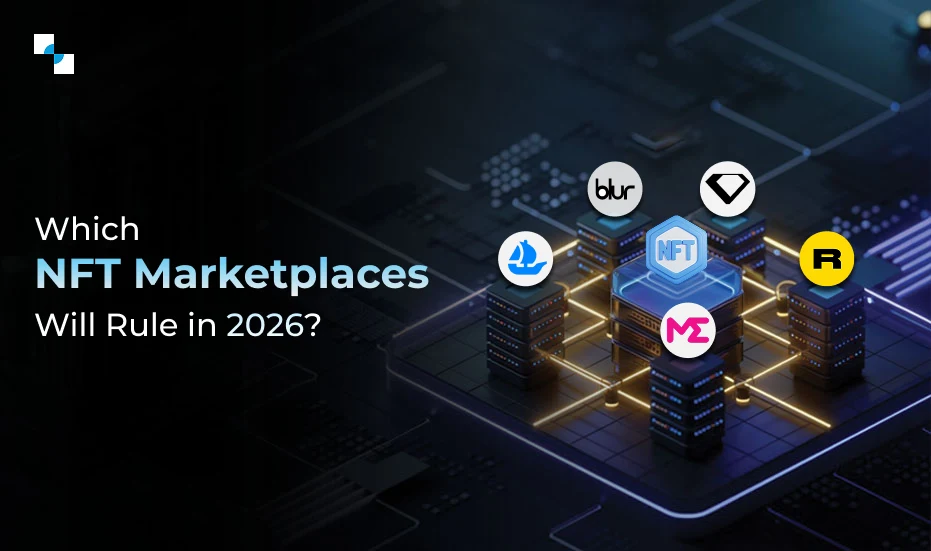There is a significant shift in the role of NFT development in credential authentication education. Micro-credentials are replacing degrees, online learning platforms are taking over traditional classrooms, and the idea of “achievement” is changing. In the midst of these changes, a basic inquiry emerges: how might we ensure the authenticity and value of academic credentials in this digital space?
An innovative and secure method for recording and verifying academic credentials is provided by Non-Fungible Tokens (NFTs), powered by blockchain.
What is Academic Credential Verification?
Academic credentials must be verified in order to maintain public trust in the education system. It entails confirming the legitimacy and validity of academic accomplishments like degrees, diplomas, or certificates by contacting the institution that issued them directly. But, the traditional procedure is frequently ineffective and error-prone.
Academic credential verification plays a vital role in maintaining a strong and reliable education system. Here’s why it’s important:
- Building Trust: Verification safeguards the reputation of educational institutions. It confirms that credentials are genuine and earned through legitimate academic work. This trust is essential for employers, other schools, and society as a whole.
- Combating Fraud: In today’s digital world, creating fake documents is easier than ever. Verification helps weed out fraudulent credentials. Strong verification systems are crucial to fight against these false claims.
- Ensuring Qualified Professionals: Verification guarantees that individuals possess the skills and knowledge their credentials represent. This is especially important in fields like medicine, law, and engineering, where specific educational qualifications are mandatory for practice.
The Traditional Credential Verification Process
Traditionally, verifying academic credentials involves several steps:

- Contacting the Issuing Institution: The verification process usually starts with the employer, school, or verification service directly contacting the institution that issued the credential. This contact can happen via phone, email, or even regular mail.
- Request for Confirmation: The requesting party sends a formal request to the issuing institution, asking them to confirm the details of the specific credential. This request typically includes information about the student, the awarded credential, and the date it was issued.
- Institutional Verification: The issuing institution then verifies the information provided by checking its records. This might involve reviewing archived data, which can be slow, especially for older credentials.
- Response: Finally, the institution responds to the requesting party, confirming or denying the validity of the credential. This response is often in writing, adding to the overall verification time.
Challenges in Traditional Academic Credential Verification
The existing academic credential verification system has several significant flaws:
- The Rise of Fake Degrees: The digital age has made it easier to replicate paper documents, leading to an increase in fake degrees. This undermines the credibility of genuine academic achievements, resulting in wasted resources for employers and diminished value for graduates.
- Complex Verification Process: Traditional verification is bureaucratically cumbersome, involving weeks of emails, phone calls, and navigating institutional red tape. This inefficiency discourages thorough checks and delays the hiring process for graduates.
- Lack of Transparency: The current system offers limited insight into a student’s academic journey. Verifications typically confirm only the existence of a degree, omitting additional certifications, skills, or non-traditional achievements. This opacity hampers employers’ ability to fully assess a candidate’s qualifications and limits students’ ability to showcase their complete academic profile.
These issues underscore the need for a secure, efficient, and transparent solution for academic credential verification. NFT development offers a promising answer.

How NFTs Transforms Academic Credential Verification?
NFTs present an innovative solution to the loopholes present in the current academic credential verification system, offering numerous benefits that could revolutionize academic credentialing. Here’s an in-depth look at how NFTs in academic credentials can pave the way for a more effective verification process:
A. Secure and Tamper-Proof Verification
- Uncompromised Security: NFTs utilize blockchain, a decentralized ledger system renowned for its cryptographic security. The data stored on a blockchain is extraordinarily resistant to tampering, virtually eliminating the risk of fraudulent credentials. This ensures that academic achievements represented as NFTs remain authentic and reliable.
- Immutable Record-Keeping: Once information is entered onto a blockchain, it becomes permanent and unalterable. This prevents institutions from accidentally or deliberately altering a student’s academic record, fostering greater trust and transparency in the verification process.
- Global Accessibility: Blockchain technology operates on a global network, allowing NFT-based credentials to be verified by anyone with internet access and a blockchain explorer. This removes geographical barriers and simplifies verification for international students and employers.
B. Streamlined Verification Process
- Instant Verification: The time-consuming verification procedures of the past are eliminated. With NFT development, employers or institutions can instantly verify the authenticity of a credential by simply accessing the student’s NFT on the blockchain. This reduces administrative burdens and speeds up the hiring process.
- Cost Efficiency: Traditional verification involves extensive communication with issuing institutions, document handling, and potential service fees. NFTs can significantly lower these costs by simplifying the verification process and eliminating intermediaries.
- Enhanced Accessibility: Verification records are easily accessible to authorized individuals with the student’s consent. Students can conveniently share their NFT credentials with potential employers or educational institutions, streamlining application processes.
Read more about NFTs for digital credentials in this blog.
C. Increased Transparency
- Beyond Traditional Diplomas: NFTs can represent not only traditional degrees but also micro-credentials, certifications, and online course completions. This provides a more comprehensive view of a student’s academic journey and skillset.
- Verifiable Skills and Accomplishments: Additional achievements, such as research projects, awards, or workshop participation, can be linked to the NFT credential. This allows students to showcase their full range of skills and accomplishments, enhancing their competitiveness in the job market.
- Support for Lifelong Learning: NFTs can support lifelong learning by allowing students to add new certifications and achievements to their existing NFT record over time. This creates a dynamic, up-to-date record of their evolving skillset.
By harnessing the potential of NFTs, educational institutions can develop a more secure, efficient, and transparent system for NFTs in academic credentials. This empowers students to confidently present their achievements, assures employers of the qualifications of their candidates, and opens up new possibilities for lifelong learning and skill development in the evolving educational landscape.
Global Universities and Institutions Using NFTs for Verification
While the use of NFTs in academic credential verification is still a nascent trend, there are a few notable universities and institutions pioneering its implementation:
1. Duke University (USA):
- Program: Master of Engineering in Financial Technology
- Details: Duke University offered its first NFT-based diplomas in 2021 for graduates of its Master of Engineering in Financial Technology program. These NFTs contained secure digital representations of their degrees, verifiable on the blockchain.
2. University of Georgia (USA):
- Program: New Media Institute
- Details: The University of Georgia’s New Media Institute offered graduates the option to receive their degrees as NFTs alongside traditional paper diplomas in 2021. This pilot program aimed to explore the potential of NFTs for secure and verifiable credentialing.
3. Massachusetts Institute of Technology (USA):
- Program: Research & Advocacy
- Details: While not issuing NFT diplomas yet, MIT has been a vocal proponent of using blockchain technology for secure and verifiable NFTs in academic credentials. Their research and advocacy efforts are paving the way for wider adoption of NFTs in the education sector.
4. Lucerne University of Applied Sciences and Arts (Switzerland):
- Program: Pilot Program
- Details: Lucerne University conducted a pilot program in 2021 where students received certificates for completing continuing education courses as NFTs. This pilot explored the feasibility and benefits of using NFTs for non-degree credentials.
5. Emurgo (Global Blockchain Education Provider):
- Program: Cardano Blockchain Specialization Courses
- Details: Emurgo, a global blockchain education provider affiliated with Cardano, offers courses with completion certificates issued as NFTs on the Cardano blockchain. These NFTs provide a verifiable record of a student’s learning achievements.
It’s important to remember that the use of NFTs in academic credential verification is still in its early stages. While these examples showcase its potential, wider adoption across universities and institutions is still evolving. As the technology matures and standards are established, we can expect to see more universities and institutions embracing NFTs for secure and transparent verification of academic achievements.
Final Thoughts
The academic sector is currently facing significant challenges related to credential verification and fraud prevention. It is imperative for universities and institutions to guarantee the authenticity of their degrees and diplomas. NFT development presents an innovative approach that could transform this process. Educational institutions are strongly encouraged to investigate the implementation of NFTs for issuing verifiable credentials. This technology can simplify verification procedures, bolster security measures, and allow graduates to securely showcase their accomplishments. By adopting a forward-thinking approach, universities have the opportunity to embrace technological advancements and position themselves as pioneers in a secure and transparent academic environment.







